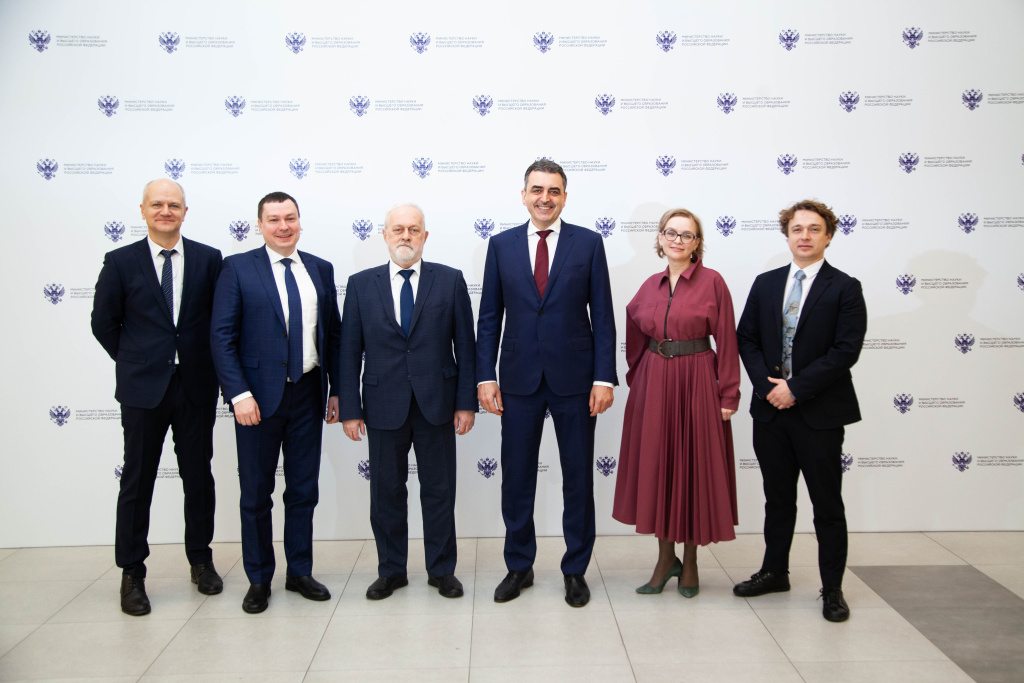Tomsk State University confirmed its leading position in the Research Leadership track of the Priority 2030 program. According to experts' assessment, TSU entered the top 5, and it will receive program funds. It should be noted that TSU is the only classical, regional university in the first group of leading universities. The TSU team headed by Rector Eduard Galazhinsky successfully presented the concept of university development as an ecosystem university that is based on five principles: common values, positioning, communication protocols, cooperation, and joint activities to generate ideas and developments at the federal level.
The concept of an ecosystem university is at the heart of TSU's development strategy to 2035, meaning that universities, research institutes, and industrial partners implement joint projects to ensure the country's technological sovereignty.
“Current challenges require a new system of cooperation, and TSU's response is an ecosystem university. This is adherence to the five principles we have derived: common values, which, for example, imply national identity; cooperative activities through the development of breakthrough projects such as the genomic printer and forming a new market of detectors; common communication protocols and common positioning; and collaboration with other communities. All these principles are implemented in the University of Tomsk," emphasized Eduard Galazhinsky, Rector, Tomsk State University, and chairman of the Tomsk Consortium of Scientific and Educational and Scientific Organizations.

TSU is a leader in various government programs. For example, it is one of the six universities that are forming a new model of the national higher education system. Since 2023, the university has been implementing 13 new educational programs in law, IT, physics, ballistics, and other fields. One of their features is that the student can obtain micro-qualifications. This is a tool that will help to reduce the shortage of personnel in the rapidly changing markets and provide students with jobs before they receive a diploma. Admission statistics confirm a high demand for the new programs — the competition for them is twice as high as for other programs.
In addition, TSU established the School of Advanced Engineering Studies Agrobiotech that implements a new type of engineering education, as students obtain knowledge and skills in agrotechnology, biotechnology, and ecotechnology such as improvement of breeds and varieties, processing of products and waste, and development of food of the future. Agrobiotech collaborates with JSC SIBAGRO; Engineering Center of Chemical Technology (ECCT), LLC; Solagift; JSC Avgust; Znamensky Selection Genetic Center; Geoscan Group, LLC; Innagro, LLC; Ekoil; JSC Krasnoyarskagroplem; Siberian Federal Scientific Center for Agrobiotechnology of the Russian Academy of Sciences (SFNCA RAS); National Research Centre Kurchatov Institute; Yanka Kupala State University of Grodno; and others.
TSU and other universities participating in the University of Tomsk project are implementing an accelerator program as part of the University Technological Entrepreneurship Platform federal project. It is aimed at developing technological entrepreneurship in Russia and focused on students, the university community, and investors. The program will result in the U-NOVUS-2023 forum for early-career scientists, where Tomsk students will present their projects to the experts. TSU is the regional leader of the early-career projects supported under the Student Startup program— more than 25 projects have received funding of 1 million rubles.